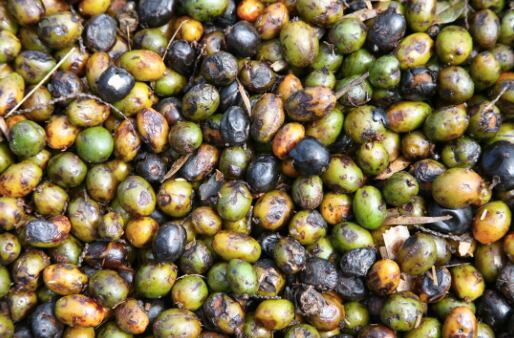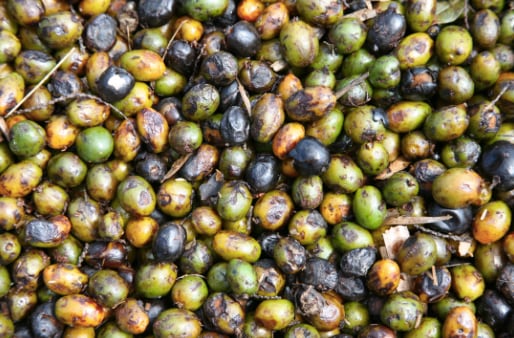Saw palmetto (Serenoa repens) is a bushlike species of palm that grows in dense thickets, primarily in Florida. The ripe berries of the plant yield an ingredient rich in fatty acids and phytosterols that have been associated with amelioration of symptoms of benign prostatic hyperplasia (BPH), or enlarged prostate, in men.
Saw palmetto has been a big seller. According to the 2017 edition of ABC’s Herb Market Report, the botanical ranks No. 11 in sales of individual botanical ingredients in the natural channel, and 17th in the mainstream channel.
The popularity of the ingredient has led to some issues in supply. One of these has been the presence in the market of powder ingredients made from ground, unripe berries. These lack most of the important bioactives associated with the botanical’s health effects, though they might pass the initial bar of botanical identification.
Beyond that strength issue, which also includes the use of unripe berries to make extracts low in bioactives, there is a purity one as well. According to BAPP, which is a joint effort of the American Botanical Council, the American Herbal Pharmacopoeia and the National Center for Natural Products Research at the University of Mississippi, saw palmetto has been adulterated in a variety of ways. These include substitution of ‘exhaustively extracted’ material from other berry-type ingredients, substitution of berries of other closely related palm species, or substitution of lower cost oils of vegetable origin.
Detecting animal fats
But a new type of adulteration is making inroads into the market, one that is particularly insidious, according to ABC founder and executive director Mark Blumenthal. According to researchers associated with Italian academic institutions and with the ingredient supplier Indena, extracts coming from Asia are now being adulterated with animal fats of indeterminate origin, but possibly consisting of a combination of pig fat with chicken fat and/or lamb fat.
“What they are doing is going to rendering plants and getting the leftover fat and using that to create a suitable fatty acid profile,” Blumenthal told NutraIngredients-USA. “This is especially gruesome if you are a Hindu or if you are a committed vegetarian for other reasons, or if you are a Muslim or a Jew.”
The animal based adulterants were discovered by the Italian researchers using isotope ratio analysis. This type of analysis, which is discussed in the updated BAPP bulletin, holds great promise for verifying the supply chain of botanicals, the Italian researchers said.
“Isotope Ratio analysis has a tremendous potential to authenticate dietary ingredients and medicinal plant products not only in terms of natural vs synthetic- or plant vs animal origin, but also in terms of association to a precise plant species and geographical area of origin,” they wrote in their paper, which was published in the journal Fitoterapia earlier this year.
"Adulteration by mixing saw palmetto extracts with fatty acids from animal materials is particularly challenging to detect since these fraudulent mixtures are designed to pass routine laboratory chemical methods of analysis,” said Stefan Gafner, PhD, who is ABC’s chief science officer as well as serving as BAPP technical director.
To see the full BAPP saw palmetto bulletin, click here.
Support for ABC saw palmetto program
A major saw palmetto supplier, Florida-based Valensa International, which is a division of Indian company E.I.D. Parry, has stepped forward to provide financial support for ABC’s efforts on saw palmetto.
Through the organization’s Adopt an Herb program, Valensa is providing support for ABC’s HerbMedPro database to help ensure that this educational resource remains up to date for researchers, health professionals, industry members, students, consumers, and other members of the herbal and dietary supplements and natural medicine communities.
“Saw palmetto is an important botanical with extensive scientific and clinical literature supporting its use,” said Umasudhan C.P., president and CEO of Valensa. “Specifically, the oil from the ripe saw palmetto berry is extracted to obtain a nutraceutical that has proven benefits in the management of lower urinary tract symptoms associated with an enlarged prostate.
“Valensa is committed to creating the highest quality, effective nutraceuticals, and is proud to be a world leader in producing saw palmetto extract, obtained using our sustainable wild-harvest practices and clean supercritical CO2 extraction process,” Umasudhan continued. “ABC is providing a valuable service by helping industry and consumers access scientifically accurate and relevant information regarding the efficacy of saw palmetto and the quality differences that can exist in marketed products,” he added.
For more information about the HerbMedPro database, click here.


